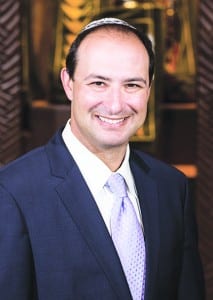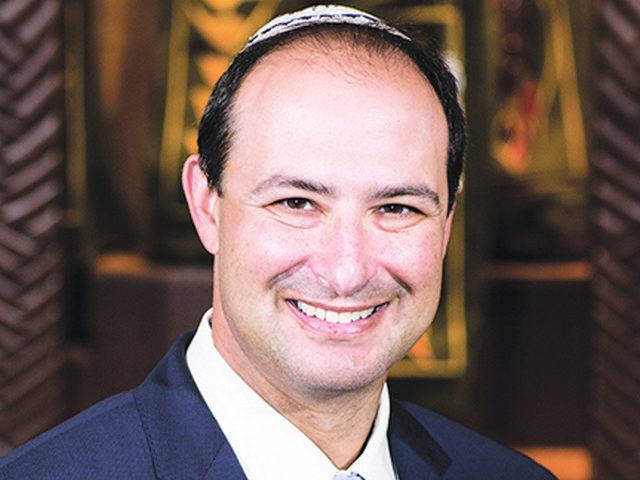
Several months before I visited Beth Am for the very first time I was speaking to a colleague in South Florida who was familiar with our congregation. He told me that the Torah study class here was legendary, that sometimes they would get up to 100 people on Shabbat morning to come and study the parashah. I figured he was exaggerating but still I was excited about the opportunity to work in a place where study of Torah was so prevalent.
After six months here I can tell you that I have never seen anything like this group of people which has grown in number and comes week after week to study Torah, and work diligently to draw lessons from its wisdom that they can use in their daily lives. Not only is it a fun and spiritual group, but it is a group that understands that Torah is the basis for who we are and who we want to be.
The reason Torah study is so important is because what is revealed between the lines takes real work to uncover. There are many false assumptions made about the Torah and sometimes what people think it is all about prevents them from learning what it is really about. The intent of our system of learning at Beth Am is not to force any ideology or methodology upon students, but rather make them aware of varying different views in hopes that the real lessons of the text become clearer.
It is our hope that when we walk out of class, we will have something to take with us that will immediately add spirituality to our lives. Simply put, this cannot be attained through cursory knowledge of the stories based on what we remember from when we were in Religious School. It can only be achieved when we role our sleeves up and put some serious thought to the ideas and concepts that are inherent in the text.
There is a story in the Talmud in which a Roman asks Rabbi Akiva, “which is greater, the works of G-d or the works of man?” Rabbi Akiva replies that the work of man is greater in that G-d provides the wheat but it is man who has to do the harvesting and baking before bread can be produced. The metaphor is meant to teach that we have been given in the Torah the raw materials on which we can base our lives. Yet it is up to us to produce from the text the lessons that fit our lives. This is what we are trying to do together at Beth Am and we are looking for members to join us on this journey.
It is my dream that this group will continue to grow and that more of our members and friends in the community will continue to study with us. But I also am looking forward to seeing this group evolve and grow in different ways. I would love to see chevrutah groups emerge where people get together during the course of the week to study other Jewish texts related to Torah. And I would like to see all of us continue to search out ways to make the wisdom of Torah relevant in our daily lives.
This is our heritage and our gift, and it is so gratifying to see how we are accepting this responsibility at Temple Beth Am. If you would like to discuss your personal journey into the world of Torah, please let me know so we can set you on a path towards fulfillment and discovery!







Comments are closed.